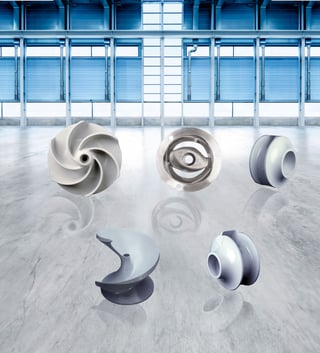 Part 2 of 6 Series - Chopping or Cutting: what is the best method in handling difficult waste water applications?
Part 2 of 6 Series - Chopping or Cutting: what is the best method in handling difficult waste water applications?
While chopper or cutter pumps are often specified for difficult waste water applications, it is important for end users and engineers to consider the whole treatment process and understand the potential side effects of using these technologies to handle modern waste water, which is heavily laden with “flushable”
wipes and other fibrous hygienic materials. It is especially critical for hospitals and prisons to use macerators, as this is a big help to waste water systems operating across the country.
One question that needs to be asked is “Are there side effects to using chopper and cutter pumps?”
What aspects of these types of pumps should be considered?
What kind of wear and tear happens to chopper and cutter pumps as they operate in modern waste water?
What are some areas of concern regarding the treatment plants’ system and processes?
What is the real efficiency of these types of pumps?
While efficiency is important, the reliability of the equipment is even more vital. Do we already have the best solution for new challenges in waste water transport?
Thoughts to these questions can be found in our technical article – read here…
